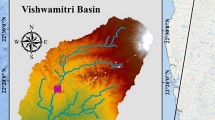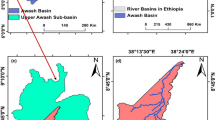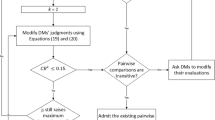Abstract
Multiobjective fuzzy linear programming (MOFLP) irrigation planning model is formulated for the evaluation of management strategy for the case study of Jayakwadi irrigation project, Maharashtra, India. Three conflicting objectives net benefits, agricultural production and labour employment are considered in the irrigation planning scenario. All three criteria are to be maximised and the last two are sustainability related. All three objective functions are quantified by linear membership functions in a fuzzy multi objective framework. It is observed from MOFLP solution that net benefits, agricultural production and labour employment are 2.031×109 Rupees, 2.1186×106 tons, 3.5858×107 man-days respectively with degree of truth (λ) 0.5715. Analysis of results indicated that net benefits, agricultural production, labour employment have decreased by 4.13, 5.39 and 3.4% as compared to ideal values in the crisp linear programming (LP) model.
Similar content being viewed by others
Author information
Authors and Affiliations
Additional information
Present address: Department of Civil Engineering, Birla Institute of Technology and Science, Pilani, Rajasthan, India E-mail: ksraju@bits-pilani.ac.in
Rights and permissions
About this article
Cite this article
Raju, K., Duckstein, L. Multiobjective fuzzy linear programming for sustainable irrigation planning: an Indian case study. Soft Computing 7, 412–418 (2003). https://doi.org/10.1007/s00500-002-0230-6
Issue Date:
DOI: https://doi.org/10.1007/s00500-002-0230-6




